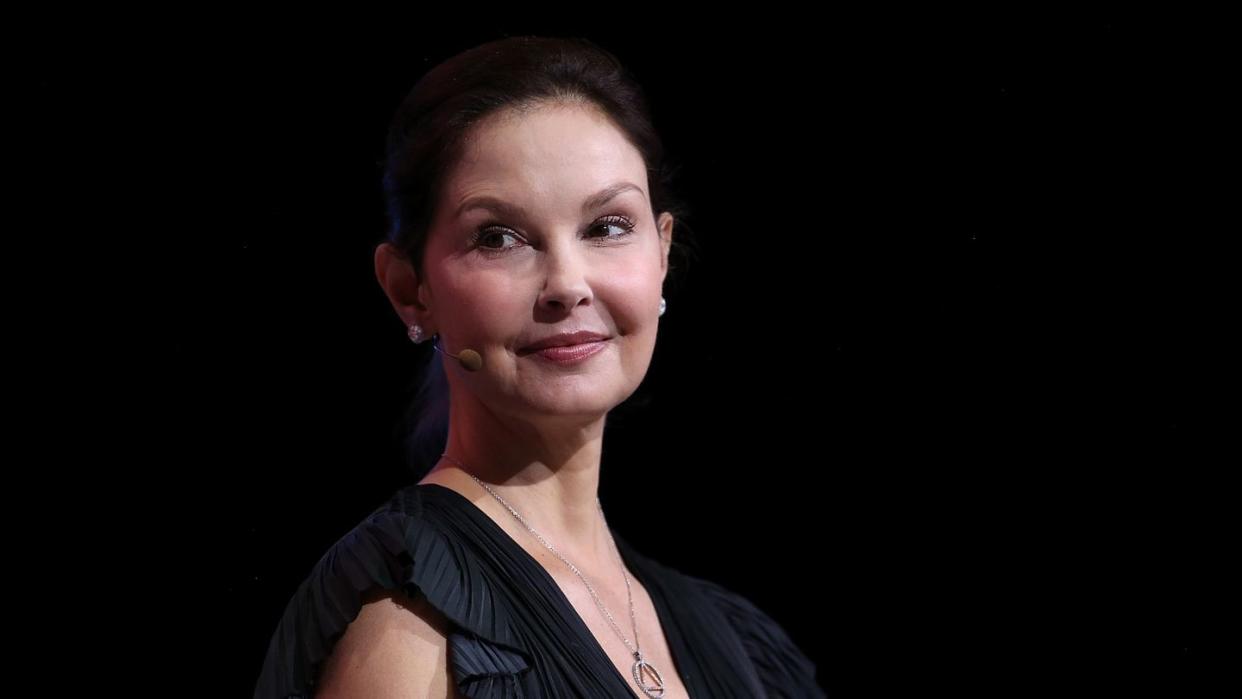Ashley Judd on the New White House Plan to Prevent Suicide

- Oops!Something went wrong.Please try again later.
- Oops!Something went wrong.Please try again later.
Two years ago today, Ashley Judd’s mother died by suicide. But the actress and activist is remembering Naomi Judd’s life, not her death. Last week, Judd joined the White House to announce the 2024 National Strategy for Suicide Prevention and accompanying Federal Action Plan, which will tackle the country’s mental health and overdose crises head on. Over the next three years, the initiative aims to support both at-risk populations and survivors of suicide loss like Judd.
She shared these insights for people who are struggling or recovering.
Tell us more about the recovery process after the loss of your mother. How do you continue to honor her legacy while also protecting your own peace and healing?
Those of us who love someone who has a mental illness have a duty and an obligation to live a good and happy life. We show others that such a life is possible and help create hope. I’m not betraying my loved one if I am happy. Sometimes the best thing I can do for another person is to take care of myself. The trauma that I don’t transform in myself is trauma I will transfer to another person or situation.
For Mom’s anniversary, I paused and considered how I wanted to be kind to myself, so I sent an email to our chosen-family community and invited everyone to join me on Zoom. I’ve asked a friend to go on a walk around a pond with me. I’m going to talk to David Kessler, the grief specialist. All things that are nurturing. I also have to work, because my life is important, my activities matter, and my mom’s so proud of me. She would want me to show up for my life and my advocacy.
That chosen family is so important. What does yours mean to you?
They’re such an integral part of my joy, my support, my wellness. Yesterday, for example, one of us had a challenge with her daughter, one of us ran a half marathon, one of us went horseback riding. We were involved in many different activities and we were in different places at the moment, so we were all texting each other and sharing in these ups and downs. One of us needed to go have a good cry and one was saddle sore, and I was like, Is it okay if I send pictures of the good time I had? Because I didn’t want to be tone-deaf. But it’s just wonderful.
What can you say to someone who is struggling or going through a similar recovery process?
A concept that has been helpful to me is that mental illness lies, and it is a thief. It lies to us very convincingly, and in these dark moments of distorted thinking, whispers: It can never get better. But if we can have this tiny sliver of memory that it is a disease that is lying, we can create enough space to remember to call or text the Suicide & Crisis Lifeline, 988, or reach out to someone and say, “I’m not doing well right now.”
I believe we all deserve to be remembered not just for how we died but how we lived. Sometimes when we have a gathering, I’ll say, “I’d like to have a chair here. This is where Mom would be sitting.” Or “I want to put on her apron while we cook.” Or in the middle of a conversation, I’ll just say, “Mom would’ve really gotten a kick out of that comment.” It’s really important to bring the whole of my mother into my life.
What does the White House’s National Strategy for Suicide Prevention mean to you?
It means that other people may be spared the grueling devastation with which my family still walks. It’s the two-year anniversary of our beloved mother’s death by suicide, and this action plan will save lives and improve the quality of the lives it saves. And if someone does die by suicide, it will really support the survivors of that loss.
Is there a particular part of the program that resonates most with you?
Language is so important. It shapes how we understand the disease of mental illness. That understanding informs our feelings, and how we feel about someone creates how we treat them. This action plan updates our language. That’s very meaningful to me. I wouldn’t say my mom was pancreatic cancer or she was psoriasis. My mom wasn’t mentally ill. She had a mental illness. That’s a very crucial distinction, and it’s no longer kind or appropriate to say someone committed suicide. We now say someone died by suicide. They didn’t commit a sin; they didn’t commit a crime.
You Might Also Like

